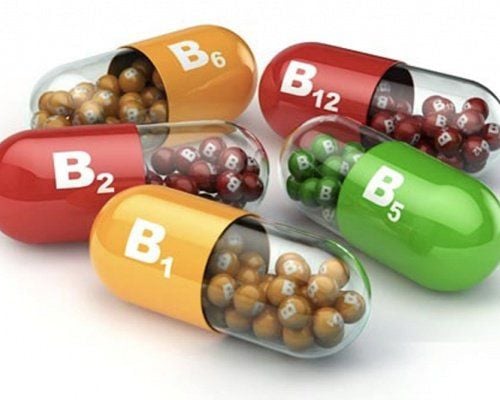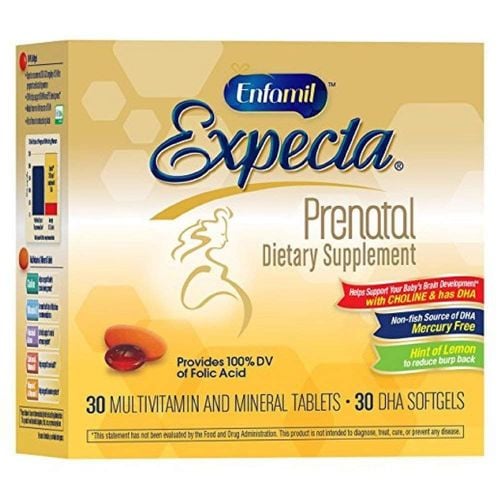This is an automatically translated article.
Short bowel syndrome reduces malabsorption due to small bowel resection. The usual symptoms of short bowel syndrome depend on the length and function of the remaining small intestine, but severe diarrhea is common in most children and nutritional deficiencies are common. Therefore, the diet for children with short bowel syndrome is extremely important and necessary to help children develop healthy.
1. What is short bowel syndrome in children?
The intestines are an important part of the digestive tract, playing an important role in digesting food into nutrients and helping to absorb nutrients into the bloodstream. When the intestine is partially removed, the remaining intestine may gradually adapt to ensure the function of the digestive tract. The remaining parts of the intestine will tend to change structure to be able to absorb nutrients that were previously absorbed by the resected intestine. Therefore, if a child has some intestine removed, the remaining intestine can still be nourished normally.However, this organ needs a certain amount of time for the intestines to adapt. In the period immediately after surgery, your baby may not be able to absorb nutrients, fluids, vitamins and minerals as well as they did before surgery.
Short bowel syndrome is a condition in which the length of the intestine is functional but no longer than 120 cm. This condition presents with a cluster of symptoms that occur after surgical removal of part of the bowel. At that time, the remaining intestine has not yet adapted to maintain the normal function of the digestive system. Some of the common symptoms and signs of short bowel syndrome in infants and young children include:
Bloating - mild or severe abdominal distension, ringing in the abdomen Cramps - this is a condition in which the muscles are tight Diarrhea is a condition in which loose or watery stools are passed, several times a day, and immediately after meals. Dehydration: symptoms of dehydration such as thirst, dry skin, sunken eyes, little urine output,... Weight loss

Dinh dưỡng cho bệnh nhân hội chứng ruột ngắn cần được quan tâm
2. Nutrition for patients with short bowel syndrome
2.1. Split many meals
Parents should divide meals for children from 6 to 8 small meals a day during feeding in short bowel syndrome. Small meals with small amounts of food spaced evenly will help relieve pressure on the remaining bowel and avoid straining the intestinal anastomosis.
Small amounts of food in meals are also easier to digest and absorb faster into the bloodstream. Thereby reducing the symptoms of food stagnation in the intestinal lumen. Therefore, crush the food and give it to your baby slowly.
When the symptoms have subsided, the intestinal tract has adapted, parents can slowly return the child to the 3-meal-a-day diet.
2.2 Drink less water during meals
Eating or drinking a lot of liquid with a meal will fill up the food that passes through the intestines faster, which means you may not be able to fully digest or absorb nutrients. Do not drink more water during meals because children also eat broth or water from dishes such as porridge, pho,...
In addition to dry food, the total amount of water for each meal should not exceed 120ml (about 1⁄). 2 cups of rice). If you drink soup or soup with a meal, you should divide this amount of liquid evenly during mealtime, do not drink all the water at once.

Cha mẹ nên chia nhỏ bữa ăn cho trẻ từ 6 đến 8 bữa nhỏ trong ngày
2.3 Eat enough nutrients according to daily needs
Parents need to build a diet full of nutrients for their children according to their daily needs. Nutrition for patients with short bowel syndrome includes:
Protein: The average amount of protein in a day is 1-1.2g/kg body weight. For example, if a child weighs 10kg, the amount of protein needed for the child is 10g of protein/day. About 50% of protein grams have been provided from grains such as rice, bread, etc. So you need to provide 5g more protein from protein-rich foods. Every 100g of protein-rich foods will provide 17-20% of protein.
Refined or low sugar complex carbohydrates such as white bread, white rice, peeled potatoes, cereals, sweet potatoes, noodles, vermicelli, noodles,... Average accounts for about 50% of the energy of the diet, that is, a child with short bowel syndrome weighing 10 kg needs about 150 kcal from carbohydrates.
Fat: The amount of fat to eat is moderate, some foods contain a lot of fat such as: cooking oil, butter, salad dressings, cream sauces, sauces,... Therefore, you can spread them. Put some butter on top of toast or add a little mayonnaise to vegetable dishes for an extra treat. If the child has had the long ileum, or the last part of the small intestine, removed, the child should eat more fat for breakfast and gradually reduce the amount of fat at lunch and dinner.
Eat less sugar: Some foods have a lot of sugar such as honey, crackers, cakes, chocolates, candies, milk tea, tea, fruit juices, syrups,...
Provide enough water for Children: The total amount of water a child needs to drink during the day depends on their weight and is calculated as 40ml x weight. For example, a child weighing 10kg needs 400ml of water/day. Note that this amount of water is provided through all liquid foods such as soup, porridge and drinks such as milk, juice, etc. Therefore, parents need to subtract the water components from the food. Calculate the amount of filtered water to drink daily.
Fiber: Parents need to choose the right fiber. Because insoluble fiber is not digested and makes stools bulkier, there is a risk for a child's short bowel. Insoluble fiber is abundant in whole grains, vegetables and brown rice, etc. Soluble fiber forms are usually safer because when entering the digestive system, it will form a moderate mucus solution, slows digestion and absorption without increasing pressure on the child's short intestine.
Also, after surgery, the child will have difficulty digesting uncooked vegetables. Therefore, only soft cooked vegetables should be given to children. At first, children should eat about 1⁄2 cups of vegetables and then gradually increase. If the digestive symptoms do not get worse, you can gradually increase the amount of cooked vegetables for your child.
Besides, after surgery, the child's eating will decrease, so parents can add 1 vitamin tablet per day to prevent micronutrient deficiencies. It is recommended to use supplements with the right amount of micronutrients according to the needs of the child.
In summary, short bowel syndrome is a malabsorption condition caused by surgical resection of the small intestine. Symptoms usually depend on the length and function of the remaining small intestine, but most children have severe diarrhea and nutritional deficiencies are common. Therefore, nutrition for patients with short bowel syndrome is extremely important and necessary to help children grow healthy. Therefore, after surgery, parents need to consult a nutritionist to have the most suitable diet for the child.
Please dial HOTLINE for more information or register for an appointment HERE. Download MyVinmec app to make appointments faster and to manage your bookings easily.













